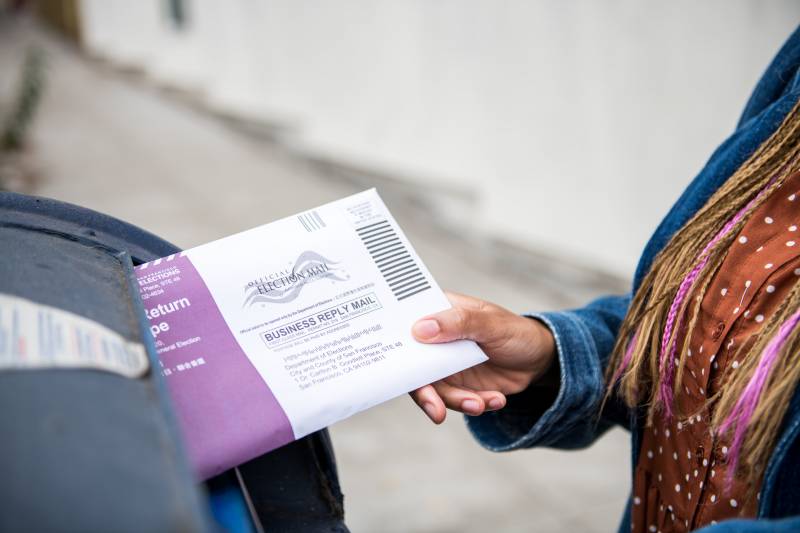Last year, after Newsom signed legislation to pilot a universal vote-by-mail system in the 2020 election, 86% of voters cast a mail ballot. In February, the vote-by-mail expansion was extended through the end of 2021.
None of the 28 Republicans in the state Legislature voted for AB 37, continuing the partisan divide over voting by mail that widened after the 2020 election.
Mail-in voting has not been shown to favor either political party at the polls, and Republicans in California have historically embraced it. In 2020, nine GOP legislators voted for a bill to send all voters a ballot by default for that year’s general election.
But in the wake of former President Donald Trump’s unfounded attacks on universal mail-in voting (which he claims, without evidence, is rife with fraud), just 13% of Republicans in California now have a great deal of confidence in the state’s voting system, according to a PPIC poll out this month.
"I was really happy that we had bipartisan support in 2020 and I was pretty frustrated that we didn't have that in 2021," said Berman. "I believe that there were Republicans that wanted to vote for this bill but who felt the pressure from their party and from the far right to not support it."
As AB 37 made its way through the Legislature, Republicans argued that an expansion of mail-in balloting was not necessary as the pandemic receded in the state and returning to the polls poised less of a health risk.
As the state shifts from Election Day voting to a month of mail-in ballot casting, the bill signed by Newsom also expands the window for county election officials to process ballots.
Election workers will be able to prepare ballots for counting (but not actually tally the results) up to 30 days before Election Day, adding time to review the signatures voters fill out on their ballot envelopes. The new law also allows county registrars to count ballots received up to seven days after polls close, as long as they were postmarked by Election Day.

